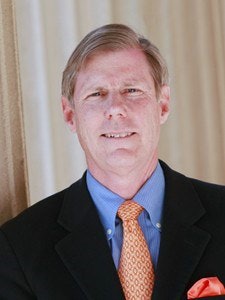 Dr. George Forsythe says that higher education “must help students develop a global understanding about current tensions and possible solutions.”
Dr. George Forsythe says that higher education “must help students develop a global understanding about current tensions and possible solutions.”
For this installment of “Diverse Conversations,” I interviewed Dr. George B. Forsythe, president of Westminster College, concerning the “globalization of higher education.” During his presidency, this private undergraduate liberal arts college has been transformed into a global leadership community nationally ranked for its diversity.
What do scholars mean when they speak of the “globalization of higher education?”
There are several ways to look at globalization of higher education. (1) Academic Content — students need to know about and understand the world and America’s place in the global community. Colleges and universities respond by adding “global awareness” to their curricular outcome goals, including “global perspectives” across the curriculum, or adding specific programs in global studies, international studies, or transnational studies. (2) Educational Process — Colleges and universities provide a rich array of study abroad or study away experiences to students that are designed to immerse them in another culture. (3) Community Building — Colleges and universities recruit students from around the world in order to build the global community on campus where students live and learn together as global citizens. (4) Global Reach — Colleges and universities establish a physical and/or virtual presence in the international market. At Westminster, we are aggressively pursuing the first three, with major emphasis on creating a global community in America’s heartland, with 16% of our undergraduates coming from 75 different countries.
What exactly is a global university?
I suspect when people use this term, they mean what I am suggesting in number 4 above. A global university is one that has a global presence, with physical campuses throughout the world and/or a virtual presence through distance learning. I also suspect it means the faculty and students are drawn from around the world.
How can a U.S. college or university become a global institution while also staying true to its mission?




















